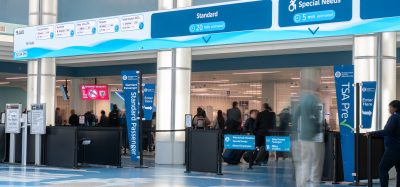Budapest Airport hosts workshop to boost e-commerce flow from China
Posted: 27 August 2019 | International Airport Review | No comments yet
In an attempt to open an e-commerce gateway with China, Budapest Airport held a workshop to highlight the opportunity BUD presents to the market.


Budapest Airport (BUD), in collaboration with AirBridgeCargo Airlines, has organised workshop events in Shanghai and Hong Kong for representatives from Chinese air cargo and e-commerce companies.
Among those attending the event were Chinese e-commerce giants Yunda Express, STO Express and SF Express, Qingdao and Xi’an airports, and the Consul General of Hungary in Shanghai
Rene Droese, Chief Property and Cargo Officer, BUD, said: “Budapest Airport is right on track to becoming the main cargo hub for China in the Central and Eastern Europe (CEE) region. In the last few years the e-commerce market in CEE has increased to €80 billion per annum, and from its central location, BUD can supply the entire region.”
Join us live: Shaping the Next Generation of Hold Baggage and Air Cargo Screening
Join us live for an insightful webinar on 11th December at 14:00 GMT, in collaboration with Smiths Detection, as we explore the strategic balance of operational efficiency, regulatory compliance, and sustainability in high-volume security environments.
This session offers a focused look into future-proofing your security strategy.
Key learning points
- Cost Reduction: Strategies to minimize bag travel time while simultaneously reducing operational costs.
- Regulatory Roadmap: Insights into the next wave of regulatory changes and their impact on future investment decisions.
- Sustainable Systems: Practical approaches to building sustainability into security systems and lowering the total cost of ownership (TCO).
- Scalable Solutions: Real-world examples of scalable systems supporting current airport growth and preparing for tomorrow.
Register now for expert insights, case studies, and actionable strategies on operational efficiency!
Discussions at the workshop covered topics from e-commerce to the Belt and Road Initiative, as well as competition from direct Chinese train services, and new routes opening between BUD and Chinese airports.
The workshops gave attendees the opportunity to find out more about BUD’s capabilities and development plans including BUD Cargo City.
Szilárd Bolla, Consul General, Consulate General of Hungary in Shanghai, said: “The newly launched Shanghai Airlines-operated direct flight between Shanghai and Budapest and its cargo capacity is a serious advantage for Hungary, which comes at the best possible time to gravitate the ever growing e-commerce business into the CEE region. We have all the good reasons to believe that further flights and related logistics investment will follow from China and from the Asia Pacific region.”
BUD’s connections to China have increased during 2019 with a new freighter flight operated by Cargolux to Zhengzhou Xinzheng International Airport (CGO), and a new belly cargo connection between BUD and PVG was opened in June.
Droese said: “Budapest Airport is set to become the ideal e-commerce environment for Chinese trade, and with BUD Cargo City opening this November, we will not only be supporting growth in the air cargo industry at large, but helping to meet regional demand for Chinese imports and exports.
“We have a very active presence in China, and thanks to AirBridgeCargo Airlines and the Hungarian Consulate in Shanghai, these workshops have provided further opportunities to promote our services to the largest e-commerce companies in China.”
BUD Cargo City will become Budapest Airport’s dedicated freight terminal which will include warehousing space and a forwarder building measuring 32,800m2. A 32,000m2 concrete apron will expand the airport’s capacity for processing cargo with two additional parking positions for the simultaneous handling of two Boeing B-747-8F type aircraft.
WATCH NOW ON DEMAND: Enabling checkpoint flexibility with responsible open architecture
Join us for an essential virtual panel supported by Smiths Detection. We will explore how airports can overcome the challenge of mixed vendor systems by adopting a flexible, open approach to checkpoint technology.
This session offers a focused look into achieving efficiency, agility, and future-readiness.
Key learning points
- Understand what to ask during procurement to ensure long-term flexibility and avoid vendor lock-in.
- Learn how centralised image review and flexible algorithm use can help you get more from the technology you already own.
- Strategies to make mixed vendor screening systems work together to improve checkpoint performance and reduce costs.
- See examples of collaborative deployments and the operational agility they enabled.
Register now for expert insights from Los Angeles World Airports, Dutch Ministry of Justice and Security, and Smiths Detection!
Related topics
Air freight and cargo, Airport development, Non-aeronautical revenue


















